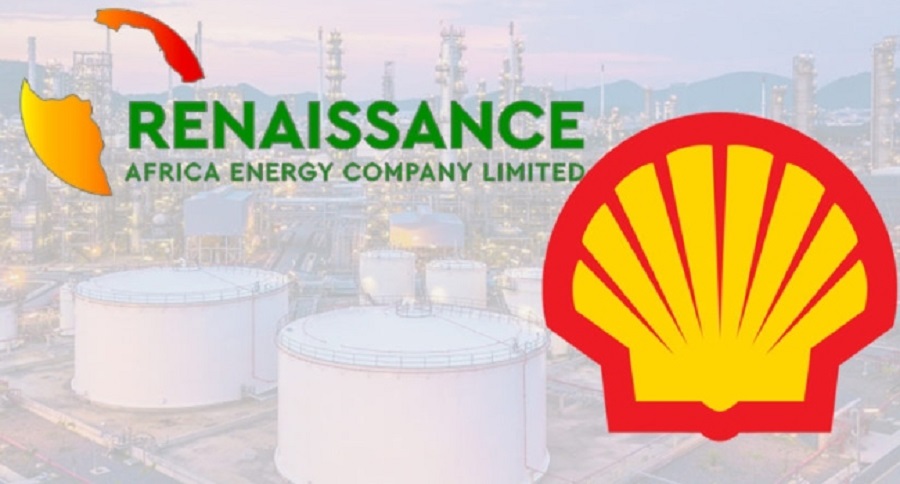News
African Governments Collaborate Tech Innovators to Strengthen Local Health Supply Chains – Report

Healthcare consulting firm Salient Advisory has launched its latest annual market intelligence report highlighting a robust pan-African ecosystem of innovators improving the safety and efficiency of health supply chains across the continent.

Funded by the Bill and Melinda Gates Foundation, the report titled “Innovations in Digitizing Health Supply Chains in Africa” is the first pan-African landscape of health supply chain innovators on the continent. It tracks nearly 350 technology-enabled innovators digitizing supply chain processes across 27 African countries.
As a wave of supply chain innovations emerged amid the COVID-19 pandemic, the long-term viability and impact of their business models was unclear. While the pace of new entry has slowed drastically, findings show African governments working with health supply chain innovators on nearly 50 partnerships, leveraging their tech-enabled solutions to resolve long-term challenges around the availability, accessibility, and quality of health products in public health supply chains.
Nearly half of the identified partnerships focus on enabling governments to digitize ordering and inventory management to improve efficiency and minimize wastage, highlighting governments’ strong interest in adopting digital order and inventory management solutions.
While most innovators working in partnership with governments are more mature, like Zipline and mPharma, several younger companies have also established public sector partnerships early on, including Nigeria’s Figorr and Zimbabwe’s Vaxiglobal.
As Africa’s tech scene grows, governments’ interest in supporting innovations that deliver social impact – while creating jobs – appears to be developing. The growing emergence of these partnerships also bodes well for the development of innovation-friendly regulations by governments across the continent.
Disparities in funding trends remain apparent across the health supply chain innovation ecosystem.
While innovators have raised $2.6 billion in funding since their founding, US and Europe-based e-commerce companies and medical drone delivery operators account for 77% of all funding raised; the remaining innovators have raised $584 million since their launch.
While government interest in innovations in ordering and inventory management appears strong and presents a potential path to scale, startups in this category have raised only 9% of all funding since their founding.
In terms of the number of deals, Plug N Play Ventures and Launch Africa stand out as the most active sources of equity funding in this space, while the Investing in Innovation program, the Bill & Melinda Gates Foundation and Google’s Black Founders Fund have provided the highest number of grants.
The 29 women-led companies active across the African continent (with a large concentration in Nigeria and Kenya) still suffer from poor access to equity financing, resulting in heavy reliance on debt and grants.
Innovators headquartered outside the continent have also raised 83% of total funding ever reported, with large e-commerce giants and medical drone delivery operators capturing the bulk of external investment.
Similarly, gender financing gaps are also evident as companies founded solely by women make up 8% of all startups but have received only 2% of all reported funds overall time. Lack of access to equity financing results in women-led companies relying more heavily on debt and grants.
As the ecosystem matures, innovators will provide supply chain solutions at a greater scale to governments, industry, global health agencies and more.
The report advocates for the design and launch of trade financing and insurance solutions to enable mature innovators to distribute larger volumes of health products for institutional customers, an adjustment of purchasing processes by global health agencies to facilitate the participation of innovators in donor-funded supply chains, and the continued deployment of grants to foster inclusive and effective innovation ecosystems.
Speaking on the launch of the report, Remi Adeseun, Director at Salient Advisory, commented: “The report offers the first comprehensive overview of tech-enabled health supply chain innovators emerging across Africa. We are surprised – and thrilled – to see so many government partnerships with innovators underway at both national and sub-national levels.
“We urge global health donors, agencies and industry partners to join with governments and investors in supporting high-potential innovators, helping foster more efficient and resilient healthcare supply chains while creating jobs.”
Hany Abdallah, Senior Program Officer, Supply Chain Systems at the Bill and Melinda Gates Foundation, also commented:
“African health innovators have demonstrated an impressive ability to utilize technology for the optimization of supply chain solutions and the improvement of access to medicines. We are delighted to witness this progress, particularly as it coincides with an increase in government partnerships, which will advance positive health outcomes.
“This trend highlights the trust and collaboration between governments and health tech innovators, as well as a shared commitment to driving positive change and fostering innovation within the healthcare sector across the continent.”
Jules Sergine Agbeci, Director of Operations at Office Pharmaceutique National, Gabon, said: “Leveraging tech-enabled solutions to digitize national supply chains across the country has had a transformative effect on the efficiency and product visibility across our local supply chains.
“As innovators develop more technology-driven models, there will be opportunities for more government agencies across the continent to test these solutions and offer clarity on their supply chain needs to enable public health systems to leapfrog long-running challenges.”
News
Abiola Adelana: Empowering African Creativity and Heritage Through Pashione

Abiola Adelana is a visionary leader whose career blends finance, culture, and innovation. With over 15 years of experience in banking and strategic development, she brings unmatched expertise to her role as Co-Founder of Pashione, an e-commerce platform dedicated to connecting Africans in the diaspora with authentic African fashion and heritage.

As the Tourism and Creative Arts Business Manager at Sterling Bank, Abiola has led groundbreaking initiatives to revive Nigeria’s tourism sector through sustainable financing. She is credited with establishing Sterling Bank as the first Nigerian financial institution to formally support the tourism industry, earning national and international recognition for her leadership.
At Pashione, Abiola is pivotal in shaping the brand’s strategy—bridging fashion, culture, and commerce to spotlight African designers and artisans globally. Her passion for African heritage and economic empowerment fuels her mission to create a platform that doesn’t just sell fashion but tells the story of Africa through every piece.
She is a proud member of the Domestic Tourism and Economic Development Working Committee, coordinated by the Nigerian Tourism Development Corporation (NTDC), and has earned multiple accolades, including:
- Culturati 100 Most Influential Personalities
- Adire Osun Brand Ambassador (appointed by the Osun State Governor)
- Rising Star Nominee – Pyne Awards Africa
- International Women’s Day Recognition for innovation in banking and tourism
Abiola is also a board member of Tourism Investment Africa, Solution17 for Climate Action and the Olowe of Ise Art Foundation (appointed by the Governor of Ekiti State).
Her academic background includes a degree in Economics from Obafemi Awolowo University, an MBA in Finance, and executive education at Harvard Business School, and she is a certified member of the Chartered Institute of Bankers of Nigeria (CIBN).
Through both Pashione and her work in the public and private sectors, Abiola continues to champion African excellence, sustainability, and creativity. She is committed to seeing Africa’s culture, fashion, and tourism take center stage on the global map.
News
World Bank Approves $1.08Bn Loan for Nigeria

The World Bank announced on Wednesday that it had approved a total of $1.08 billion in concessional financing for Nigeria to enhance education quality, build household and community resilience, and improve nutrition for underserved groups.

In a statement, the world’s largest multilateral development bank said that the loan is intended to help strengthen its extensive reach and impact in Nigeria in the face of economic hardships, especially in the wake of the Federal Government’s economic reforms in 2023.
According to the statement, the loan comprises $500 million in additional financing for the Nigeria Community Action for Resilience and Economic Stimulus (NG-CARES) Program, $80 million for Accelerating Nutrition Results in Nigeria (ANRIN 2.0), and $500 million for Hope for Quality Basic Education for All (HOPE-EDU).
Specifically, the statement said that the NG-CARES Program will support the Nigerian government in expanding access to livelihood support, food security services, and grants for poor and vulnerable households and communities.
The financing for ANRIN aims to increase the utilization of quality and cost-effective nutrition services for pregnant women and lactating mothers, adolescent girls, and children under five in select areas.
The new financing for HOPE-EDU will focus on improving foundational learning, access to basic education, and strengthening education systems in participating states.
It further stated that the NG-CARES Program was initially designed to respond to the COVID-19 pandemic and has since evolved into a shock-responsive platform providing multisectoral interventions for the poor and vulnerable.
Implemented at the subnational level across all 36 states and the Federal Capital Territory, the program stimulates the local economy through social transfers, labor-intensive public works, livelihood grants, basic community services, agriculture and food security interventions, and support to micro and small enterprises.
The additional financing will strengthen the program’s extensive reach and positive impact, underscoring the need for continued support in the face of economic hardships, including those from the 2023 fuel subsidy reforms and foreign exchange rate unification.
The statement noted that ANRiN 2.0, which aligns with Nigeria’s National Development Plan (2021-2025), the Multisectoral Plan of Action for Food and Nutrition (2021-2025), and the Nutrition-774 initiative, offers an evidence-based, multisectoral approach to combating malnutrition and food insecurity, focusing on maternal and child health, integrated nutrition services, and household food security.
It added that the program will increase the utilization of preventive and curative nutrition services, improve maternal and young child feeding practices and dietary diversity, increase access to micronutrient-rich foods, and provide essential nutritional support to vulnerable populations, mitigating the immediate risks of malnutrition and food insecurity.
The initial ANRIN program reached over 13 million children under five with nutrition services between 2018 and 2024.
For HOPE-EDU, which is part of a series of three interrelated operations alongside HOPE-Governance and HOPE-Primary Health Care, the program aligns with Nigeria’s Universal Basic Education program objectives and strategies.
HOPE-EDU will support structured pedagogy approaches to foundational literacy and numeracy, create learning opportunities where school overcrowding impedes participation, and adopt decentralized allocation and management of Universal Basic Education Intervention Funds, school management, and system information.
The program is expected to directly benefit 29 million children enrolled in public primary schools, 500,000 public primary teachers, and more than 65,000 public primary schools and their School-Based Management Committees.
The program will also receive co-financing in the amount of $52.18 million from the Global Partnership for Education Fund.
The statement quoted Ndiamé Diop, country director for Nigeria, The World Bank, as saying: “Investing in human capital is critical for Nigeria as it offers the best opportunity to unlock the enormous potential of the country.
“These new sets of programs will help Nigeria accelerate education quality and support vulnerable citizens.
“The HOPE-EDU program will enable better education outcomes by implementing bold reforms and making the right investments to equip the fast-growing young population with foundational skills and knowledge necessary for rapid and inclusive economic growth.
“Nutrition interventions from ANRIN will enhance household access to micronutrient-rich foods and nutrition services at the primary healthcare level, improve dietary diversity, and provide essential nutritional support to vulnerable populations, mitigating the immediate risks of malnutrition and food insecurity.
“The NG-CARES additional financing will support the Nigerian government in transitioning from responding to and recovering from the COVID-19 crisis to building household and community resilience.”
News
Shell, Renaissance Face Legal Action over SPDC Licence Transfer

A suit seeking to stop Shell Petroleum Development Company Limited’s deal transferring its mining licence to Renaissance African Energy Company Limited has been filed at the Federal High Court in Lagos.

The Incorporated Trustees of Human Environmental Development Agenda (HEDA) sued Shell Petroleum Development Company Limited, Renaissance African Energy Company Limited, the Federal Republic of Nigeria, and four others over the transfer of an oil exploration licence.
Other defendants are: Mr Lateef Fagbemi, attorney-general and minister for Justice of the Federation; the Nigerian National Petroleum Company Limited; the Nigeria Upstream Petroleum Regulatory Commission; and the Ministry of Petroleum Resources.
Renaissance Africa Energy Holdings, a consortium consisting of four Nigerian independent oil and gas companies – ND Western Limited, Aradel Holdings Plc, FIRST Exploration and Petroleum Development Company Limited, the Waltersmith Group, and Petrolin – recently completed the acquisition of the entire equity holding in the SPDC.
In the suit filed by Kunle Adegoke on behalf of the plaintiff, HEDA raised concerns about alleged non-compliance with Nigeria’s legal and regulatory frameworks governing the petroleum industry.
In suit number FHC/L/CS/651/2025, the group alleged that Shell’s sale of the onshore assets to Renaissance violated several Nigerian laws, including the Petroleum Industry Act 2021.
Key issues raised by HEDA include concerns over the legality, transparency, and regulatory compliance of the transaction.
The plaintiff asserted that the process failed to meet statutory provisions, including the requirement to conduct and disclose an Environmental Evaluation Study under the Upstream Petroleum Environmental Regulation, 2022.
The organisation argued that allowing the transaction to proceed without adhering to these legal requirements could set a dangerous precedent and undermine the national and public interest, particularly regarding environmental sustainability and the welfare of communities in the Niger Delta.
HEDA requested the court to declare that by sections 10 (f), 95 (11) and (15), 235, 237, and 238 of the PIA Regulations; 4.2.5, 5.2.4, 5.2.5 and 5.4 of the Guidelines for Obtaining Minister’s Consent to Assignment of Interest in Oil and Gas Assets, 2021; Regulations 7 and 8 of the Upstream Petroleum Environmental Regulation, 2022; Regulations 8(1) and (2), 9(1) and (2) of the Upstream Petroleum Environmental Remediation Regulations, 2024; Regulation 13(1) – (3) of the Gas Flaring, Venting and Methane Emissions (Prevention of Waste and Pollution) Regulations, 2023; Shell’s transfer of its oil exploration license to the 2nd defendant “is invalid, unlawful and not backed by the extant and enabling Laws of the Federal Republic of Nigeria.”
The organisation also wants the court to declare that, given the failure of the defendants to comply with the provisions of the various sections, the consent/approval given by the government to Shell in order to transfer/assign/divest its oil exploration licence to the Renaissance is unlawful, null and void.
The company’s spokesperson could not be reached for comments as of press time.
In March, Shell said it had completed the sale of SPDC to Renaissance, as announced on January 16, 2024.
The energy giant explained that the divestment of SPDC aligns with its intent to simplify its presence in Nigeria through an exit of onshore oil production in the Niger Delta and a focus on future disciplined investment in its deepwater and integrated gas positions.
Renaissance now controls SPDC’s 30 per cent stake in the SPDC Joint Venture, an unincorporated joint venture with the government-owned Nigerian National Petroleum Company Limited, Total Exploration and Production Nigeria Ltd (10 per cent) and Agip Energy and Natural Resources Limited (five per cent).

 General News3 days ago
General News3 days agoAirbnb Community Fund Donates ₦13 Billion to Nonprofits Worldwide

 General News3 days ago
General News3 days agoNigerian Military Makes History with Africa’s First Attack Drones, Bombs

 Telecom2 days ago
Telecom2 days agoMTN Denies Data Theft Allegations, Says no Financial Incentive to Do So

 News3 days ago
News3 days agoShell, Renaissance Face Legal Action over SPDC Licence Transfer

 Telecom3 days ago
Telecom3 days agoNigeria Heads Anglophone Data Protection Committee

 E-Business3 days ago
E-Business3 days agoKike, Nigerian Tech Firm Launches ‘Kike AI’ for Kitchen Innovation

 E-Financial3 days ago
E-Financial3 days agoSterling Bank Makes Online Transfer Charges Free of Charge

 Telecom2 days ago
Telecom2 days agoVitel Wireless, Nigeria’s First MVNO to Launch Operations This Quarter



























